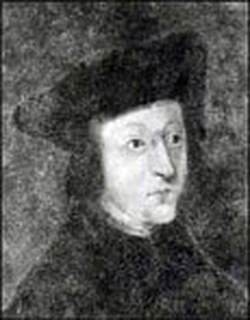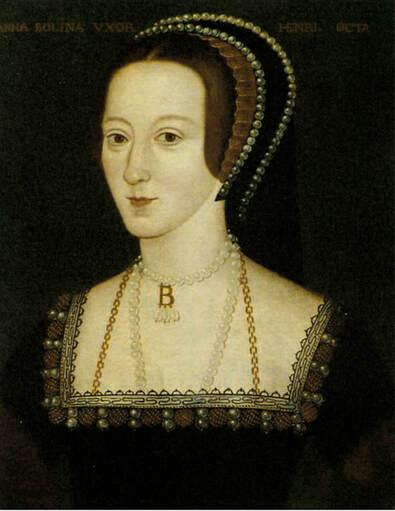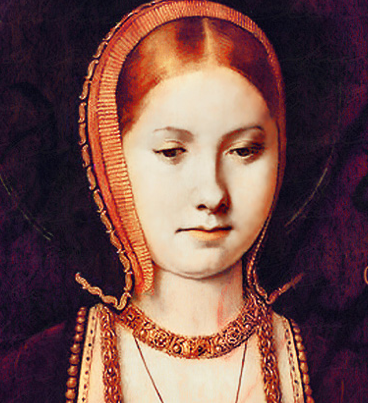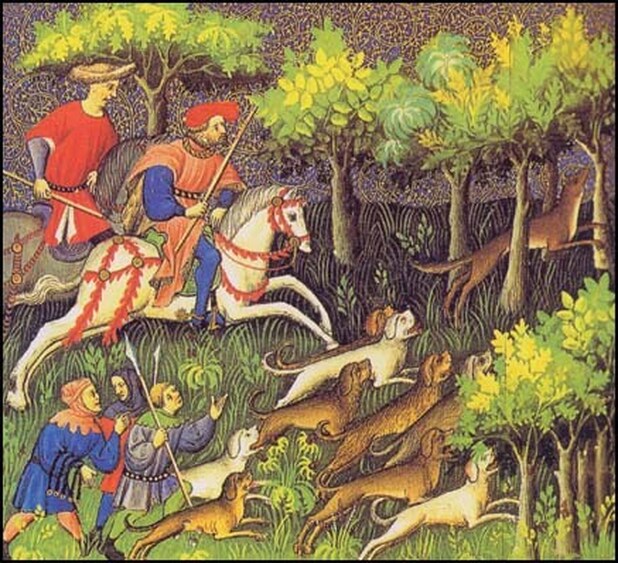Henry VIII, the Reign - Holinshed's Articles
By Mark Holinshed
Eustace Chapuys; His First Meeting with Henry VIII
 Eustace Chapuys
Eustace Chapuys
Arrival in England
In late summer 1529, Eustace Chapuys the new Imperial Ambassador arrived in London to take up his post as the Holy Roman Emperor, Charles V’s representative in England. His two predecessors had endured a torrid time during Cardinal Wolsey’s tenure as ruler of England. The cardinal, however, who a few weeks earlier had famously failed to secure Henry VIII a divorce from the Queen of England, Catherine of Aragon, was about to be overthrown.
The new ambassador was also, and most importantly, tasked with looking after the estranged queen who was the aunt of Charles V, he was undertaking what appeared to be a thankless task.
Previously Charles’ man in Savoy, Eustace was born c. 1490 at Annecy in the Duchy of Savoy. He was the second son, one of six children, of Louis Chapuys, a notary and syndic, and Guigonne Dupuys. He studied law and became a Doctor of Civil and Canon Laws. He had been in Charles’ service for some years before his appointment to England was made on 25 June 1529.
Chasing the King for a Meeting
It must have been a blessing to Chapuys that he didn’t have to deal with Wolsey and no sooner had he arrived in London than he thought to ask for a meeting with the man himself, Henry VIII, but Henry wasn’t at home. He diligently reported back to Charles…
“On my arrival at this city [London], I found that the King had already gone to a place upwards of 60 miles distant, where he generally spends his time in hunting.”
Eustace tracked him down, and the king sent back the ambassadors messenger expressing pleasure at his appointment, he would send his first secretary to take him to Grafton Manor in Northamptonshire, where Henry was ‘purposed being about the Day of the Exultation of the Holy Cross,’ which was on 14 September.
Chapuys made his way to Grafton, and on arrival, he was ordered to appear before the king at 11am. In his dispatch of 21 September 1529, he reported…
In late summer 1529, Eustace Chapuys the new Imperial Ambassador arrived in London to take up his post as the Holy Roman Emperor, Charles V’s representative in England. His two predecessors had endured a torrid time during Cardinal Wolsey’s tenure as ruler of England. The cardinal, however, who a few weeks earlier had famously failed to secure Henry VIII a divorce from the Queen of England, Catherine of Aragon, was about to be overthrown.
The new ambassador was also, and most importantly, tasked with looking after the estranged queen who was the aunt of Charles V, he was undertaking what appeared to be a thankless task.
Previously Charles’ man in Savoy, Eustace was born c. 1490 at Annecy in the Duchy of Savoy. He was the second son, one of six children, of Louis Chapuys, a notary and syndic, and Guigonne Dupuys. He studied law and became a Doctor of Civil and Canon Laws. He had been in Charles’ service for some years before his appointment to England was made on 25 June 1529.
Chasing the King for a Meeting
It must have been a blessing to Chapuys that he didn’t have to deal with Wolsey and no sooner had he arrived in London than he thought to ask for a meeting with the man himself, Henry VIII, but Henry wasn’t at home. He diligently reported back to Charles…
“On my arrival at this city [London], I found that the King had already gone to a place upwards of 60 miles distant, where he generally spends his time in hunting.”
Eustace tracked him down, and the king sent back the ambassadors messenger expressing pleasure at his appointment, he would send his first secretary to take him to Grafton Manor in Northamptonshire, where Henry was ‘purposed being about the Day of the Exultation of the Holy Cross,’ which was on 14 September.
Chapuys made his way to Grafton, and on arrival, he was ordered to appear before the king at 11am. In his dispatch of 21 September 1529, he reported…
|
“Mass over, the King came, entered the audience hall, and sent for us. As soon as he saw me from the very end of the hall, a very spacious and long one, where he was conversing apart with some of his Privy Councillors, he came forward and sat in the middle of it in an arm chair, which had been prepared for him, and under a small canopy.
“The King, at my approach, rose from his seat, advanced three or four paces to meet me, and bade me most graciously to come nearer. I did not enter at once into the matter of my commission, as I thought it better to thank him first for sending his secretary to me, and for the offers made in his name. “I explained again in as few words as possible my reasons for desiring that the audience should be private instead of public and repeated almost the same words I had said to Doctor Guenich (Hennege). This I did on purpose, that he might listen with greater attention to what I had to say, as did happen. “For having presented Your Majesty's letter he took it in his hand but did not attempt to open it at the time, believing it, no doubt, to be a mere credential. “I then began to expound my commission without omitting any part of my instructions, adding from time to time some little remark of my own, which I considered fit for the purpose. The King, meanwhile, listened with much attention, with open mien and smiling countenance. My address at an end, the King began by welcoming me to his kingdom.” |
The principal purpose of Eustace’s commission, the divorce, was one that the king seized upon straight away. Henry was annoyed that a new document – a brief – had appeared containing evidence against him but Charles wouldn’t let him have a copy.
The Chase

Remonstrations at Grafton Manor
Henry remonstrated with Eustace…
“Respecting the principal point of your commission (this he said in a low tone of voice, and as graciously as before), I must candidly tell you that I do not see what reason the Emperor has for refusing to send me the brief of dispensation for the marriage between the Queen and myself, when both of us conjointly have applied for it.
“One might say that great injury had been done to both parties by such refusal, for the Emperor must know that a Papal brief addressed to me and to the Queen, is our joint property, belongs exclusively to us, and ought to be in our hands, not in those of people whom it does not concern.
“In case of the Emperor claiming to have an interest in the affair, a faithful transcript might have been sufficient instead of retaining the original itself." The King then went on reproducing the very same arguments once made by his own ambassadors and those of the Queen in Your Majesty's presence, when they went to ask for the brief, though it must be said that he occasionally amplified and coloured them as much as he could, sometimes in Latin, at others in French, saying among other things:
"I cannot help thinking, seeing the Emperor's pertinacious refusal to send us the brief of dispensation, that it must be a forgery, made, I have no doubt, without the Emperor's knowledge, for I believe him to be incapable of such an act. I have caused all the register books at Rome to be searched, and in none of them is mention made of such a brief, whereas everyone knows that if such document really emanated from the Holy See there would still remain some record or trace of it.”
A fair point it seems. Henry was also annoyed about the pope ordering the trial of the marriage from Blackfriars in London to Rome. The trial, of course, was doomed and never resumed.
The ambassador was not to be drawn into a confrontation at their first meeting.
Henry had said. “Do you imagine that I have acted lightly in this case? Not the least, I would never believe those who spoke to me without first discussing the question and consulting books about it."
No Polemic for Eustace
But Chapuys responded “I saw that the King by these words meant to drag me into a polemic about the validity of the marriage, and therefore shunned as much as possible the discussion of this point for two reasons: the first and principal the defence of Your Imperial Majesty's acts and interference in the affair; the other, that there are already books written on the subject in which this matter of the attempted divorce has been sufficiently discussed, so much so that there is no need of further argumentation for or against it.”
But the king badgered on and turned his fire on the pope, for a while, until he declared.’ “Enough about that Pope, this is not the first time that he has changed his mind; I have long known his versatile and fickle nature."
The meeting wound up with pleasantries exchanged, Chapuys expressing his master's affection in gushing terms for Henry and Henry likewise about Charles.
“I then, “reported Chapuys,” begged his permission to call on the Queen and present the Emperor's letters to her, which he willingly granted, and then retired to his apartments.
Henry remonstrated with Eustace…
“Respecting the principal point of your commission (this he said in a low tone of voice, and as graciously as before), I must candidly tell you that I do not see what reason the Emperor has for refusing to send me the brief of dispensation for the marriage between the Queen and myself, when both of us conjointly have applied for it.
“One might say that great injury had been done to both parties by such refusal, for the Emperor must know that a Papal brief addressed to me and to the Queen, is our joint property, belongs exclusively to us, and ought to be in our hands, not in those of people whom it does not concern.
“In case of the Emperor claiming to have an interest in the affair, a faithful transcript might have been sufficient instead of retaining the original itself." The King then went on reproducing the very same arguments once made by his own ambassadors and those of the Queen in Your Majesty's presence, when they went to ask for the brief, though it must be said that he occasionally amplified and coloured them as much as he could, sometimes in Latin, at others in French, saying among other things:
"I cannot help thinking, seeing the Emperor's pertinacious refusal to send us the brief of dispensation, that it must be a forgery, made, I have no doubt, without the Emperor's knowledge, for I believe him to be incapable of such an act. I have caused all the register books at Rome to be searched, and in none of them is mention made of such a brief, whereas everyone knows that if such document really emanated from the Holy See there would still remain some record or trace of it.”
A fair point it seems. Henry was also annoyed about the pope ordering the trial of the marriage from Blackfriars in London to Rome. The trial, of course, was doomed and never resumed.
The ambassador was not to be drawn into a confrontation at their first meeting.
Henry had said. “Do you imagine that I have acted lightly in this case? Not the least, I would never believe those who spoke to me without first discussing the question and consulting books about it."
No Polemic for Eustace
But Chapuys responded “I saw that the King by these words meant to drag me into a polemic about the validity of the marriage, and therefore shunned as much as possible the discussion of this point for two reasons: the first and principal the defence of Your Imperial Majesty's acts and interference in the affair; the other, that there are already books written on the subject in which this matter of the attempted divorce has been sufficiently discussed, so much so that there is no need of further argumentation for or against it.”
But the king badgered on and turned his fire on the pope, for a while, until he declared.’ “Enough about that Pope, this is not the first time that he has changed his mind; I have long known his versatile and fickle nature."
The meeting wound up with pleasantries exchanged, Chapuys expressing his master's affection in gushing terms for Henry and Henry likewise about Charles.
“I then, “reported Chapuys,” begged his permission to call on the Queen and present the Emperor's letters to her, which he willingly granted, and then retired to his apartments.
Exchanging Pleasantries with Anne Boleyn’s Father before Meeting Catherine of Aragon
The paradox here is that as Henry VIII left so Thomas Boleyn, Anne’s father, “and other gentlemen of the court came to welcome me.” Another round of ambassadorial pleasantries followed before Chapuys was conducted to Queen Catherine’s apartments.
 Catherine of Aragon
Catherine of Aragon
The meeting with Queen Catherine was a discomfited affair because of the presence of courtiers. They were, however, able to discuss the two cardinals, Campeggio and Wolsey, who had presided over the Blackfriars trial. Their tete-a-tete sheds some light on the outcome which, to all intents and purposes, ended in her favour.
The Queen said to the ambassador. “"There are, however, matters upon which I dare not, surrounded as I am, speak to you in detail. I will send you one of my servants (“her own physician, a very trusty man”) to explain the remainder.
“There is, however, one thing I must not forget, which is that if you have not yet visited Cardinal Campeggio, it is very important that you should see him as soon as possible,[ he was about to leave England and return home] and thank him in my name and in that of the Emperor also for his honest and rightful behaviour, and the trouble he has taken in this affair. As to me, I am so grateful for what he has done that I should hardly know how to repay his services."
And of Wolsey, she responded. "There is no necessity, [to involve him] for the Cardinal's affairs are at this moment rather embroiled".
“This last sentence she said in such a low tone of voice that nobody but myself could hear her, and I doubt even whether the courtiers in the room could see her actually move her lips.”
Did He Do Well?
On leaving Queen Catherine, he was met again by courtiers this time headed by Sir John Russell who complimented him “on the satisfactory and pleasing manner in which the King had received me. I had already received from Mr. de Rochefort similar assurances, and if truth be told, I myself was far from expecting such a reception. So, when I heard my guide [ Russel] insist so much on this topic, and tell me all manner of agreeable things respecting the good impression I had made upon the King, his master, and other flattering remarks about my person…”
And so there he left them, not before noting that the king was in a great hurry to repair to the meeting place of the morning where the Lady [Anne] was ready to open the chase.
Henry’s matrimonial affairs were in turmoil, his government was in chaos and the Reformation was underway, but none of that was important enough to keep him from the chase.
For Chapuys, on the other hand, it was a pretty good day, he secured the confidence of the king, met Queen Catherine and organised arrangements with their spy, her physician – all in a day’s work for Eustace.
The Queen said to the ambassador. “"There are, however, matters upon which I dare not, surrounded as I am, speak to you in detail. I will send you one of my servants (“her own physician, a very trusty man”) to explain the remainder.
“There is, however, one thing I must not forget, which is that if you have not yet visited Cardinal Campeggio, it is very important that you should see him as soon as possible,[ he was about to leave England and return home] and thank him in my name and in that of the Emperor also for his honest and rightful behaviour, and the trouble he has taken in this affair. As to me, I am so grateful for what he has done that I should hardly know how to repay his services."
And of Wolsey, she responded. "There is no necessity, [to involve him] for the Cardinal's affairs are at this moment rather embroiled".
“This last sentence she said in such a low tone of voice that nobody but myself could hear her, and I doubt even whether the courtiers in the room could see her actually move her lips.”
Did He Do Well?
On leaving Queen Catherine, he was met again by courtiers this time headed by Sir John Russell who complimented him “on the satisfactory and pleasing manner in which the King had received me. I had already received from Mr. de Rochefort similar assurances, and if truth be told, I myself was far from expecting such a reception. So, when I heard my guide [ Russel] insist so much on this topic, and tell me all manner of agreeable things respecting the good impression I had made upon the King, his master, and other flattering remarks about my person…”
And so there he left them, not before noting that the king was in a great hurry to repair to the meeting place of the morning where the Lady [Anne] was ready to open the chase.
Henry’s matrimonial affairs were in turmoil, his government was in chaos and the Reformation was underway, but none of that was important enough to keep him from the chase.
For Chapuys, on the other hand, it was a pretty good day, he secured the confidence of the king, met Queen Catherine and organised arrangements with their spy, her physician – all in a day’s work for Eustace.

